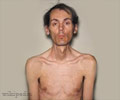Multi-system diseases like myotonic dystrophy that are complex,entails physicians and patients to identify which symptom impacts quality of life and, accordingly, what treatments should take priority.

Myotonic dystrophy has been characterized as one of the most diverse and complex genetic diseases with a wide range of symptoms ranging from fatigue, muscle weakness, cognitive impairment, depression, difficulty sleeping, impaired vision, pain, difficulty swallowing, gastrointestinal problems, and myotonia, the inability to relax muscles after contraction – such as when clenching a fist – that is the hallmark of the disease. The severity and onset of these symptoms can vary from patient to patient.
As a result, physicians and patients are often confronted with a bewildering array of treatment options and researchers have previously had no comprehensive method to measure the meaningful impact of experimental therapies. Further impetus for a patient-centered approach has come from a recent push by the federal Food and Drug Administration to require that new drugs take into account what outcomes patients feel are important.
Using a national database of muscular dystrophy patients developed by URMC, Heatwole and his colleagues surveyed 278 people with myotonic dystrophy type-1. They asked them not only which symptoms they were experiencing, but which ones have the most impact on their lives. Answers were cross referenced with the respondent's age and a genetic measure – called CTG repeat length – that roughly correlates with the severity of the disease.
The study revealed that certain symptoms like myotonia which are experienced by more than 90 percent of individuals with the disease are less important to patients than symptoms such as such as fatigue, limited mobility, and sleep problems. Respondents also identified specific symptoms that have the greatest impact on their lives. These included difficulty having children, not being able to stay in the standing position, and difficulty holding down a job.
"One of the more surprising results is that myotonia – the condition that gives the disease its name – is down the list of things that patients feel most affect their daily lives," said Heatwole. "These insights will not only have important implications for how patients are treated, but also how new therapies for the disease are evaluated by building better outcome measures."
Advertisement
Source-Eurekalert












